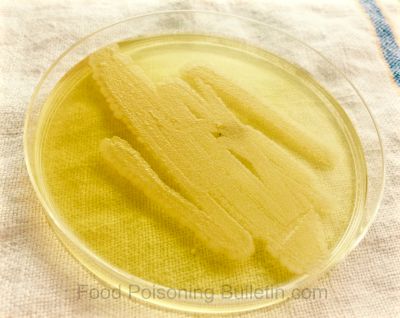Researchers in Canada have found a certain antibiotic-resistant bacteria for the first time in a food product, which means the risk of exposure is now moving beyond people who travel to certain countries and people who have been hospitalized. The bacteria is resistant to carbapenems, one of the last resort antibiotics in medicine’s arsenal. The research has been published in the Center for Disease Control’s journal Emerging Infectious Diseases for July 2014.
 In January 2014, routine testing found a carbapenemase-producing organism in squid that was for sale in a Chinese grocery store in Saskatoon, Canada. Carbapenemases are enzymes that organisms produce that destroy the carbapenem antibiotic. Scientists have found these organisms in the environment and in animals used for food, but not in food itself until now.
In January 2014, routine testing found a carbapenemase-producing organism in squid that was for sale in a Chinese grocery store in Saskatoon, Canada. Carbapenemases are enzymes that organisms produce that destroy the carbapenem antibiotic. Scientists have found these organisms in the environment and in animals used for food, but not in food itself until now.
The squid was most likely imported from South Korea. Until this discovery, scientists and doctors thought that most antibiotic-resistant bacteria that caused life-threatening infections were found in health-care settings and spread by infected people.
Joseph Rubin, assistant professor of veterinary microbiology at the University of Saskatchewan told the Washington Post that “this finding means a much broader segment of the population is potentially at risk for exposure. It’s something you may be bringing into your home rather than something you would acquire while traveling or following hospitalization.”
If the squid is cooked to a safe final internal temperature, the bacteria will be destroyed. But, as always, cross-contamination in the kitchen is a risk factor. If foods eaten raw come into contact with the raw squid or improperly cleaned utensils or work surfaces, the bacteria could easily transfer and make someone sick. The bacteria in the squid has a gene that makes it resistant to the carbapenems, and that gene can be transferred to other bacteria. That could make those bacteria resistant to the antibiotic as well. Losing carbapenems as a resource against bacterial infections may mean that common infections could become untreatable.
Scientists don’t know how the squid acquired the bacteria. It could have been contaminated during food processing, transport, handling, or from the environment. This finding creates an “urgent need to expand tracking and monitoring of these organisms,” according to the CDC.




